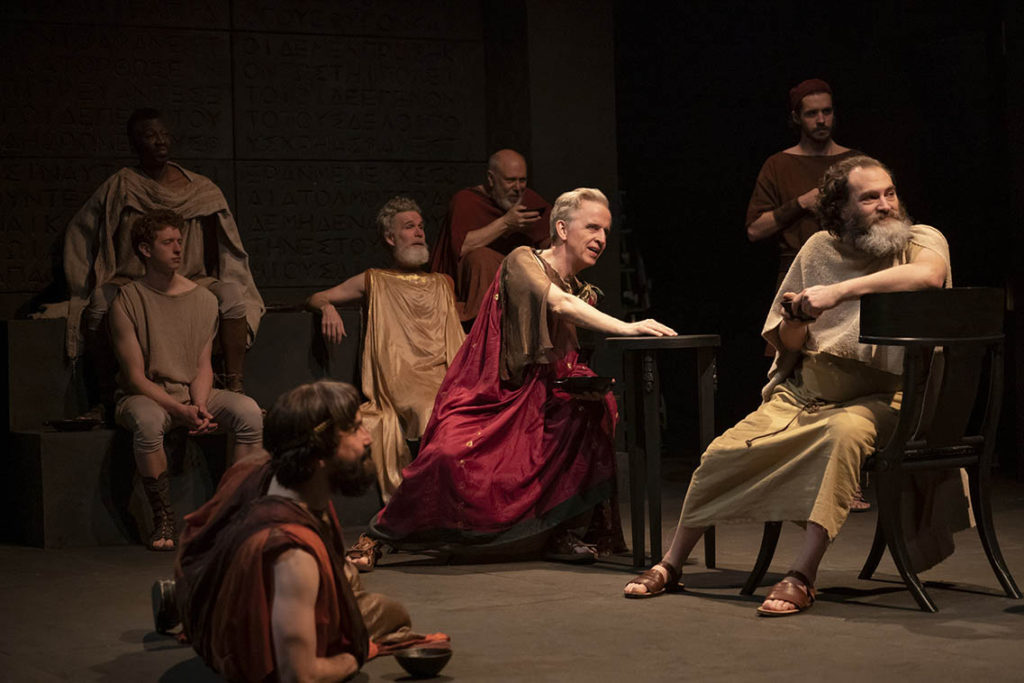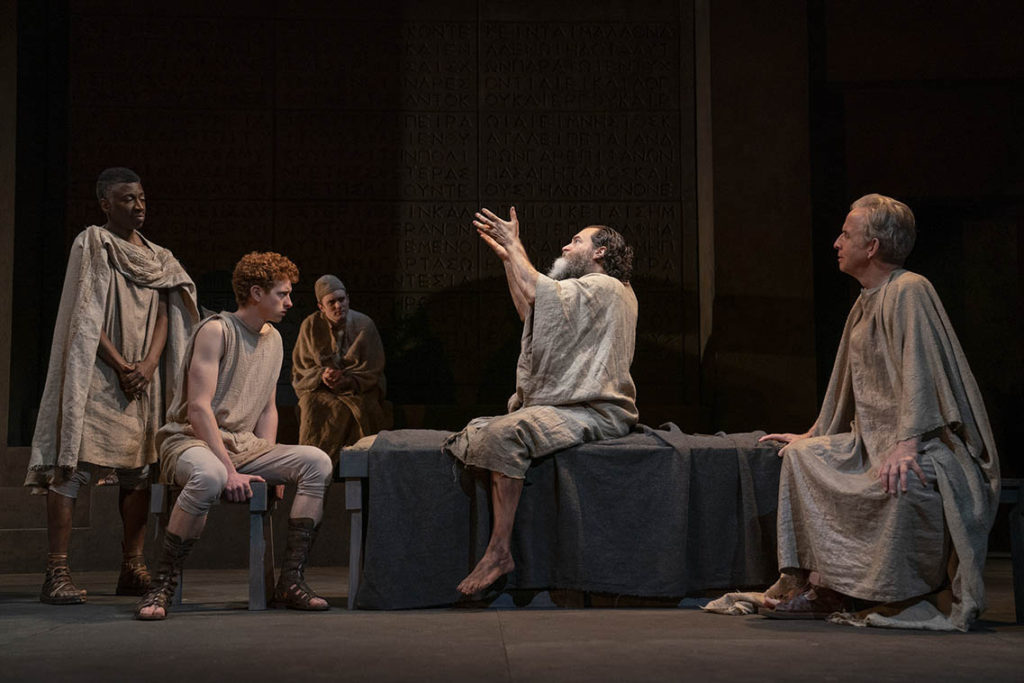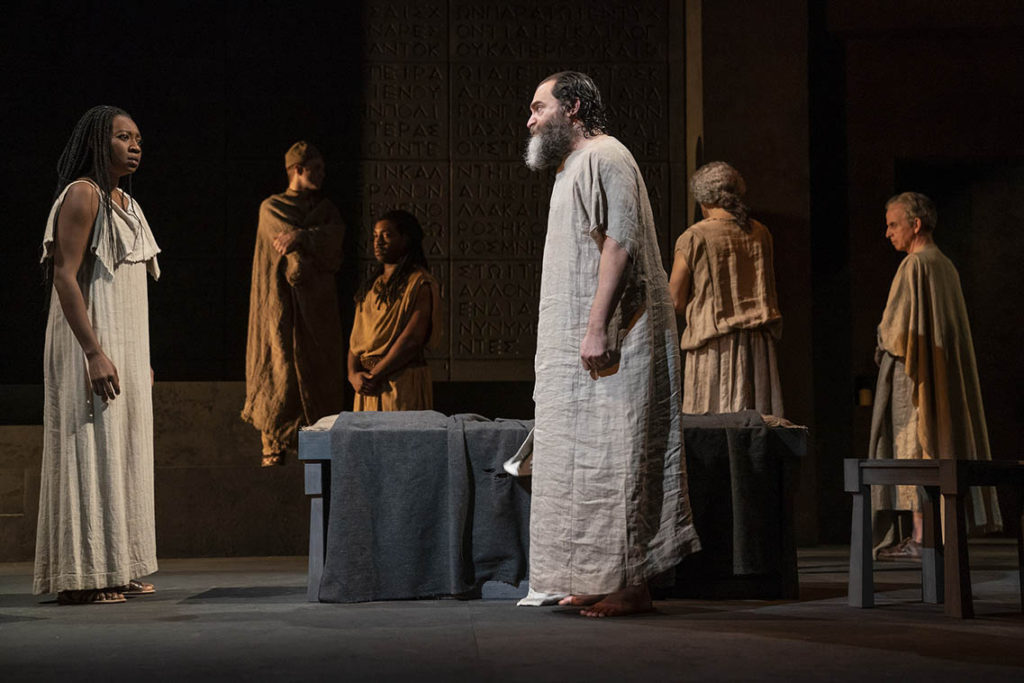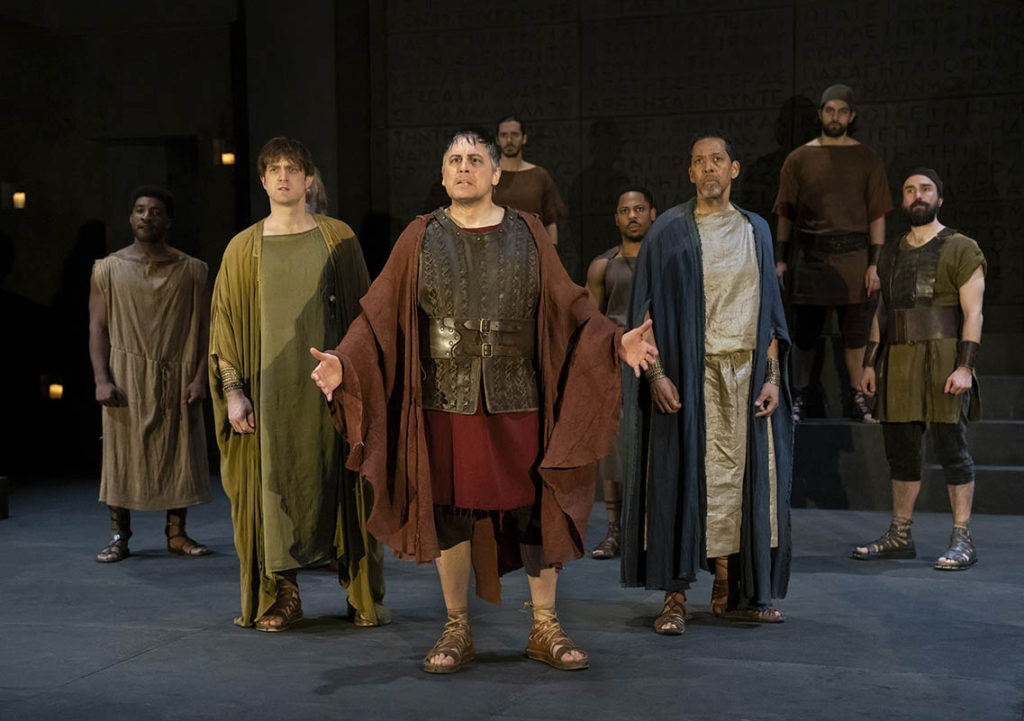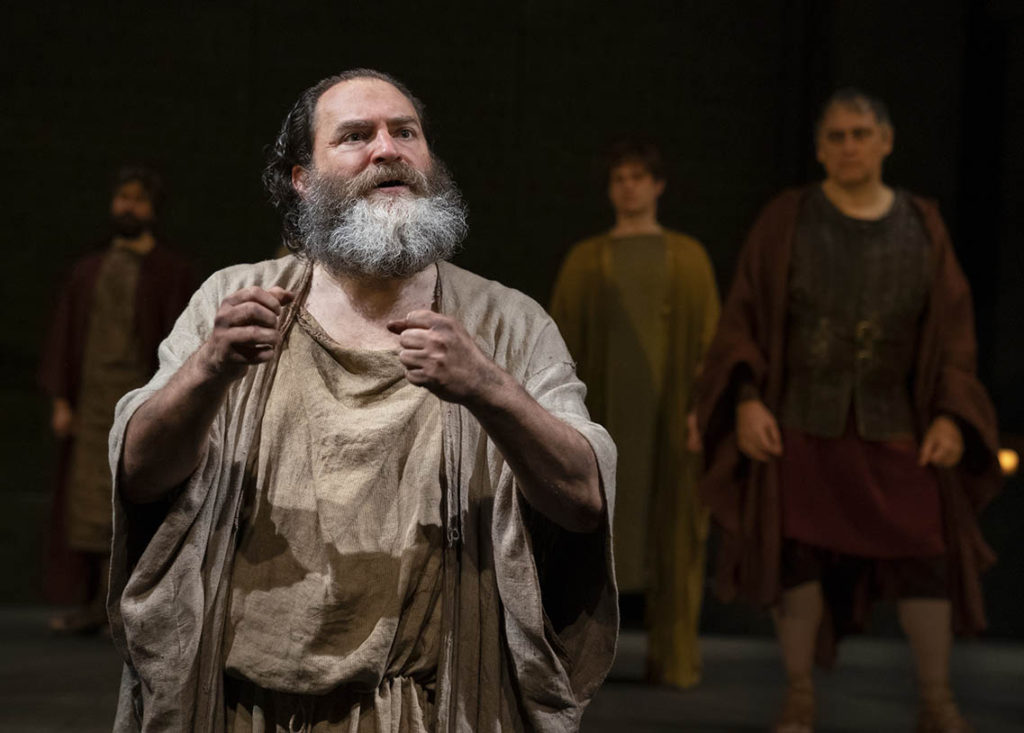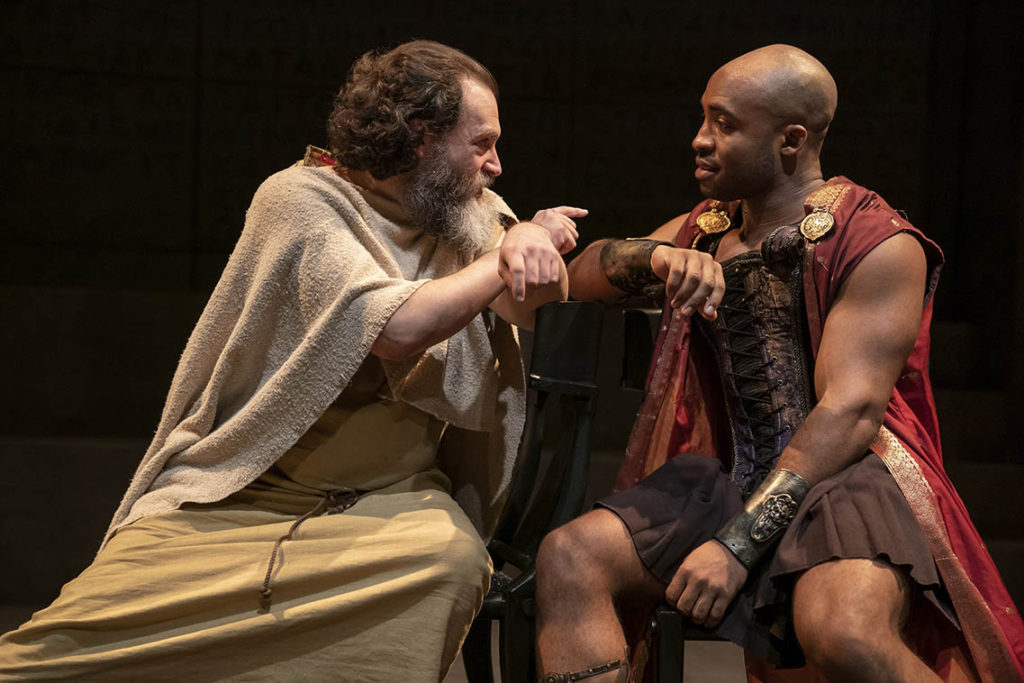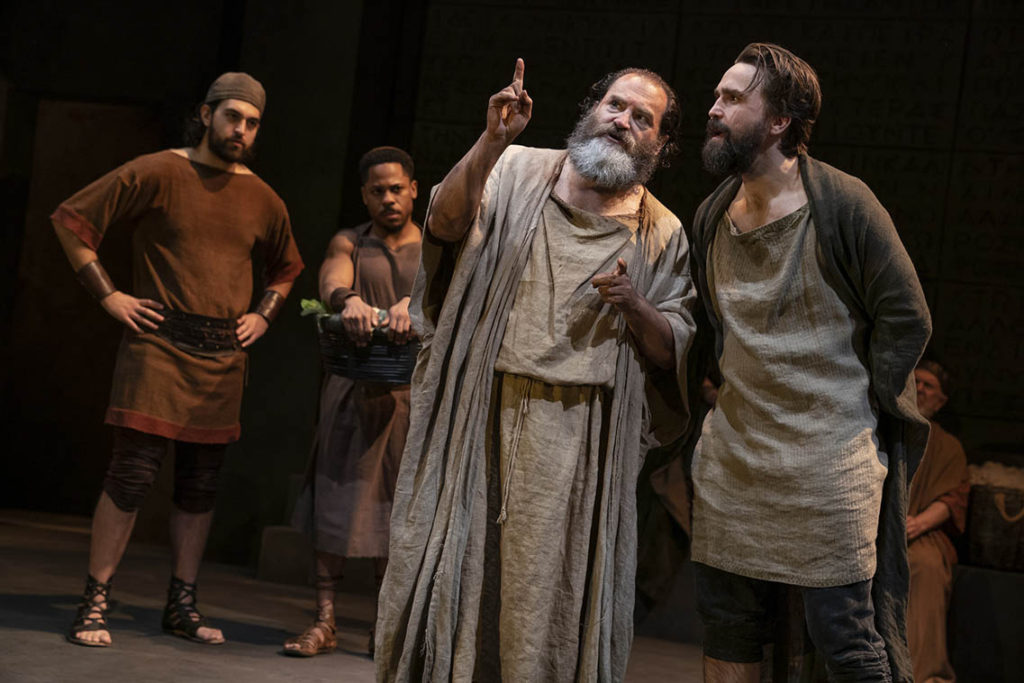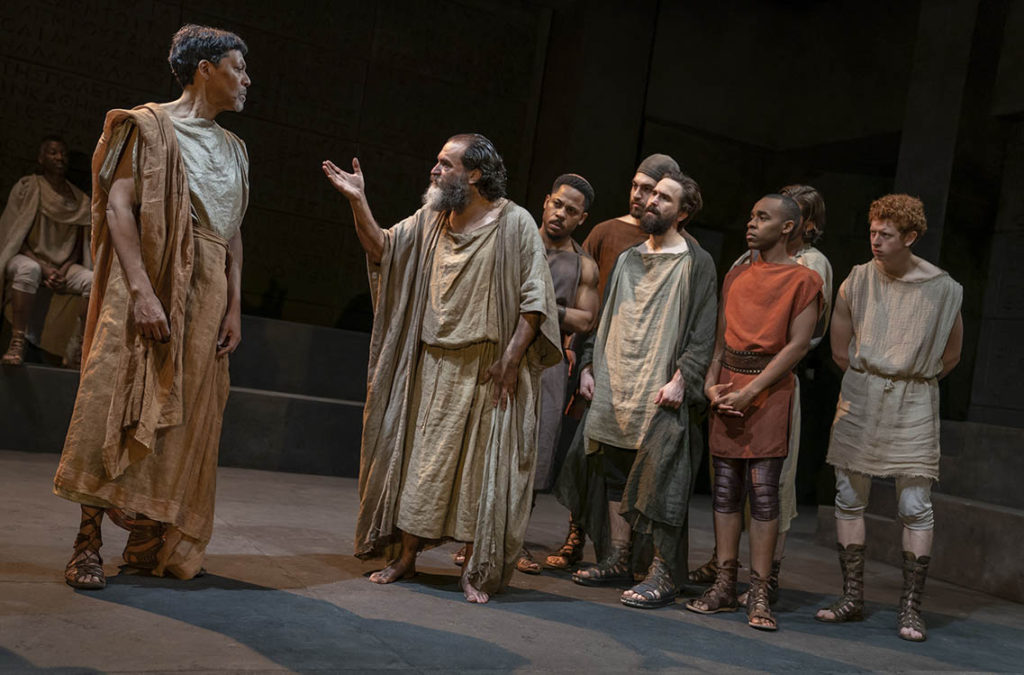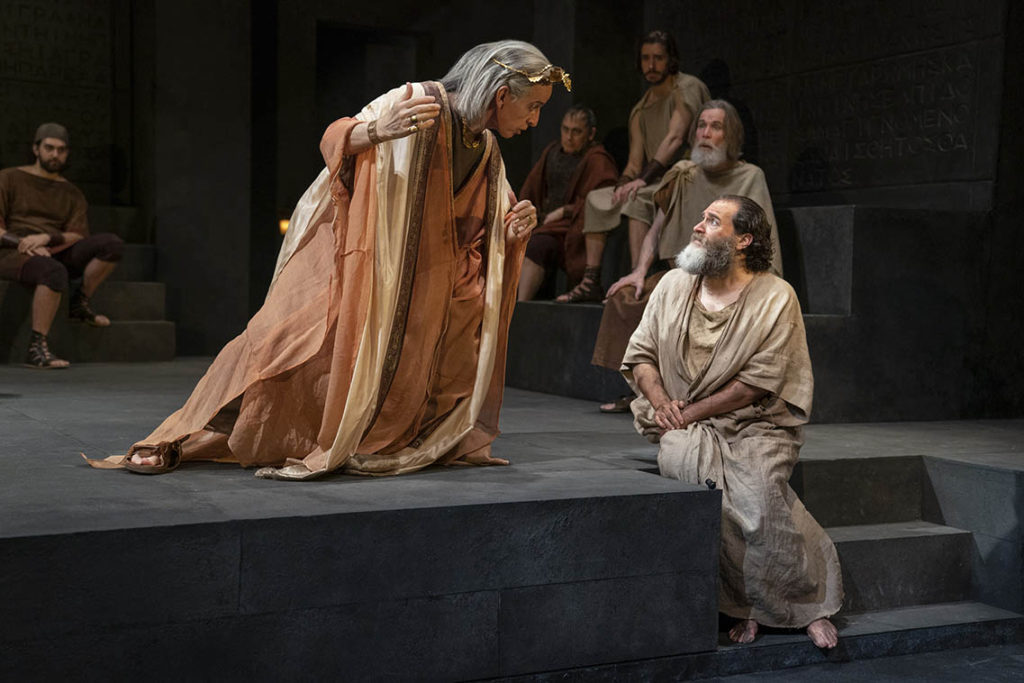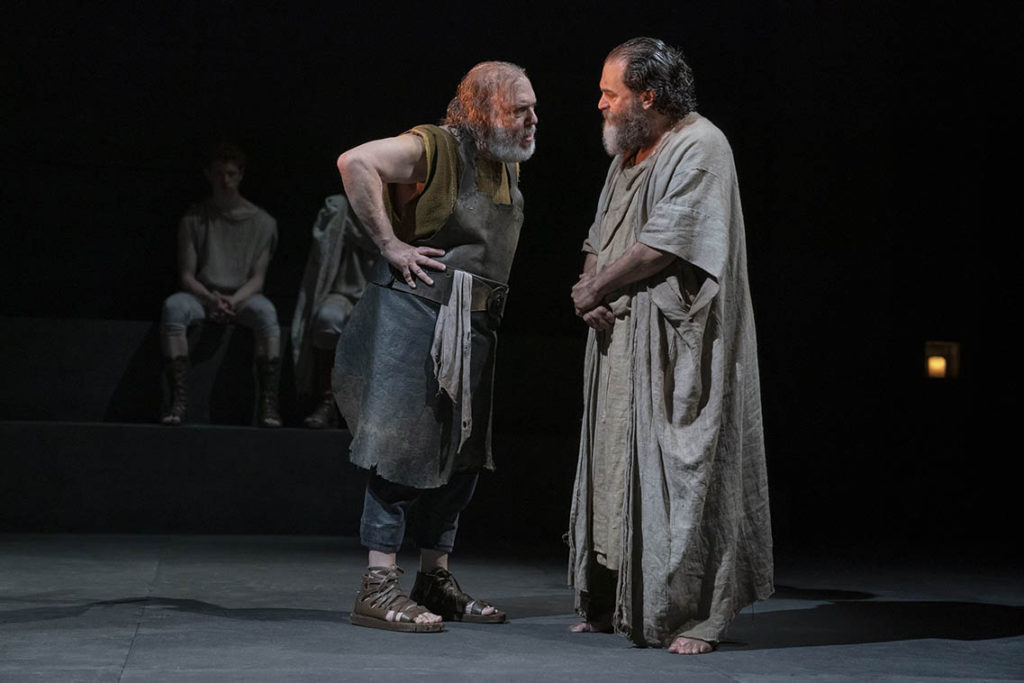SOC ON THIS
Perhaps one of the reasons Socrates has become a god-like figure in the world of philosophy is that we know very little about the actual man who existed during the dawn of writing. He kept no diaries and wrote no treatises, yet philosophies attributed to the classical Greek thinker — Socratic Method, Socratic Paradox — have become a mainstay in modern discourse. What is certain, according to historians, is that he was provocative.
Michael Stuhlbarg delivers a tour-de-force performance as Socrates, leading an excellent cast in Tim Blake Nelson’s new play named after the philosopher who chose in 399 BC to drink poison rather than go against his own nature. Or was it his principles? Did the two diverge? Was his execution — or suicide, depending on how one looks at it — a case of a man choosing abstract theories over common sense? Did Socrates give up the very real pleasures of life for some vague mythological notions? Or was it for something “real”? Did he even have a choice in the matter, morally speaking? Mr. Nelson’s muscular work does a fine job of carrying the weight of these and many other questions.
But in fact the play, both intriguing and riveting given the 150-minute running time, focuses more on Socrates in relation to Athens. How is it that this remarkable city-state, this cradle of democracy which takes such fierce pride in its democratic ideals, convict and condemn its most brilliant, moral and patriotic citizen on trumped up charges for simply asking provocative questions designed to get at the truth? Or, perhaps more to the point, for questioning the status quo? Of course this type of thing has happened throughout history in various guises, and it seems a good bet that it will continue to happen for as long as humanity exists. But watching this play in America, in 2019, one can’t help but equate the depicted events with the social and political travesties and transgressions taking place outside The Public Theater.
Deftly directed by Doug Hughes, with Tyler Micoleau’s lighting creating the feeling of oil lamps illuminating a dark cavernous hall covered in Ancient Greek writing that is Scott Pask’s simple yet evocative set, the show begins with Plato (Teagle F. Bougere) in his middle years being introduced to a potential young student (Niall Cunningham). Confident, precocious and rebellious, the youngster demands to know about Plato’s long-dead teacher, Socrates. At first Plato is reluctant, stating that it was perhaps he, Plato, the one Socrates loved most, who dealt Socrates his worst betrayal. But finally he agrees to tell the whole story, which begins when Plato is around the same age as the youngster.
If this sounds like the start of a sentimental bio-play, it is not. Rather Mr. Nelson chooses events and encounters from Socrates’ existence that demonstrate the philosopher’s approach to life, to people, to ideas, that show his method of questioning, his thought process, and his reasons for doing the things he did, and for not doing the things he did not. Since there are no extensive writings that exist from Socrates himself, what we do know about him comes courtesy of his contemporaries: Aristophanes, the playwright who viciously parodied him in The Clouds (although by all accounts they were friends, and the play depicts them as such); Xenophon, a historian who preserved his sayings; Aristotle, the polymath who studied under Plato and went on to tutor Alexander the Great; and — more so than any other — Plato himself, the protégé who wrote The Last Days of Socrates, a series of four dialogues which describe his mentor’s trial and death. Thus while what we hear is more or less factual, some of it is invented.
Fortunately, Mr. Nelson’s writing, besides demonstrating a keen intelligence and offering sympathetic, relatable characters while maintaining its stylized, classical-esque language, also, crucially, feels like it comes from a deeply personal place. The matters dramatized and ideas expressed feel like they are personal and meaningful to their author, which gives them urgency and immediacy. In this sense Mr. Nelson isn’t so much writing about a philosopher who died 2418 years ago. He’s writing about himself, about us, here and now.
The cast includes David Aaron Baker, Ro Boddie, Peter Jay Fernandez, Karl Green, Miriam A. Hyman, Robert Joy, Alan Mendez, Tom Nelis, Dave Quay, Daniel Reece, Austin Smith, Joe Tapper and Lee Wilkof.
photos by Joan Marcus
Socrates
part of Onassis Festival 2019: Democracy Is Coming
The Public Theater’s Martinson Hall
425 Lafayette Street (at Astor Place)
ends on May 19, 2019
for tickets, call 212. 967.7555 or visit Public Theater

